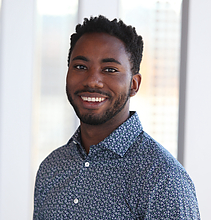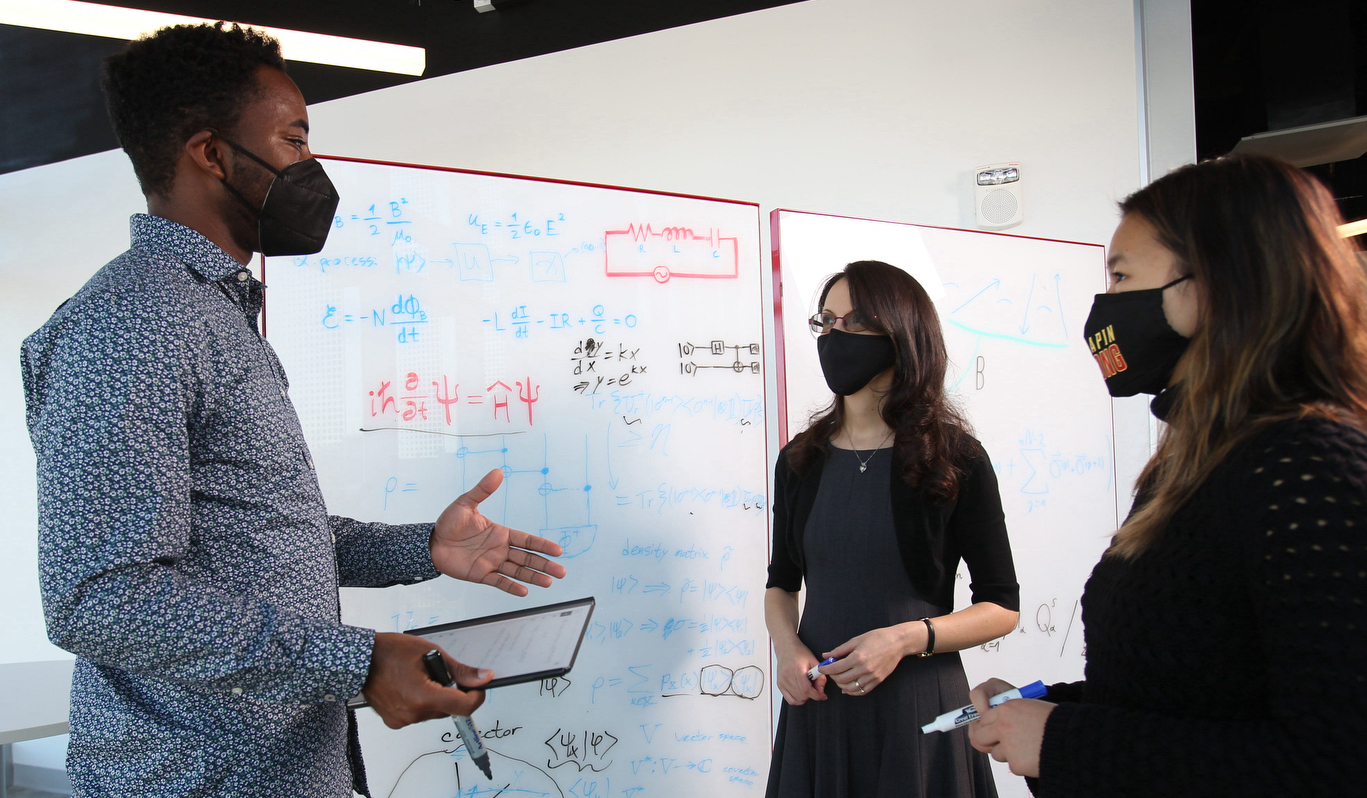 A graduate student in the Joint Center for Quantum Information and Computer Science (QuICS) has received funding from the Ford Foundation in support of his work in quantum information theory and quantum thermodynamics.
A graduate student in the Joint Center for Quantum Information and Computer Science (QuICS) has received funding from the Ford Foundation in support of his work in quantum information theory and quantum thermodynamics.
Anthony Munson, a second-year doctoral student in physics, is one of only 77 students to receive a Ford Foundation Predoctoral Fellowship in 2022.
The fellowships are awarded in a national competition administered by the National Academies of Sciences, Engineering, and Medicine. They are designed to increase diversity in higher education faculty by supporting candidates that are committed to a career in teaching and research at the college or university level in the U.S., show promise of future achievement as scholars and teachers, and are well prepared to use diversity as a resource for enriching the education of all students.
Recipients are given an annual stipend of $27,000 for three years and opportunities to network with both former and current Ford Fellows.
"It's a great honor to receive this award and become a Ford Fellow," Munson says. “I feel very grateful for all of the support I’ve received from my research mentors, especially my adviser Nicole Yunger Halpern."
Munson’s research intersects quantum information theory and quantum thermodynamics. Most recently, he’s been focused on quantum complexity, which quantifies the difficulty of preparing a desired quantum state from a relatively simple one.
“A state that has low complexity can be viewed as a resource for quantum computation, much as a blank sheet of paper can be a resource for writing sentences with a pen,” he says. “My current work formalizes the resourcefulness of low-complexity states in something called a resource theory. My fellowship will fund that project’s offshoots as well as future projects.”
After completing his doctorate, Munson says he plans to continue his research in theoretical physics as a postdoctoral researcher and, eventually, as a professor in higher education.

Yunger Halpern (pictured center), who is a Fellow in QuICS and an adjunct assistant professor in the University of Maryland Institute for Advanced Computer Studies, says that Munson is extremely deserving of the Ford Fellowship.
“Anthony has a deep and intuitive grasp of logic and argumentation that, together with his high-caliber background in quantum computation, provides a strong foundation for a career in theoretical physics,” she says. “He also has a track record of high-quality teaching and mentoring, which will support his goal of making physics welcoming to newcomers from all backgrounds.”
—Story by Melissa Brachfeld